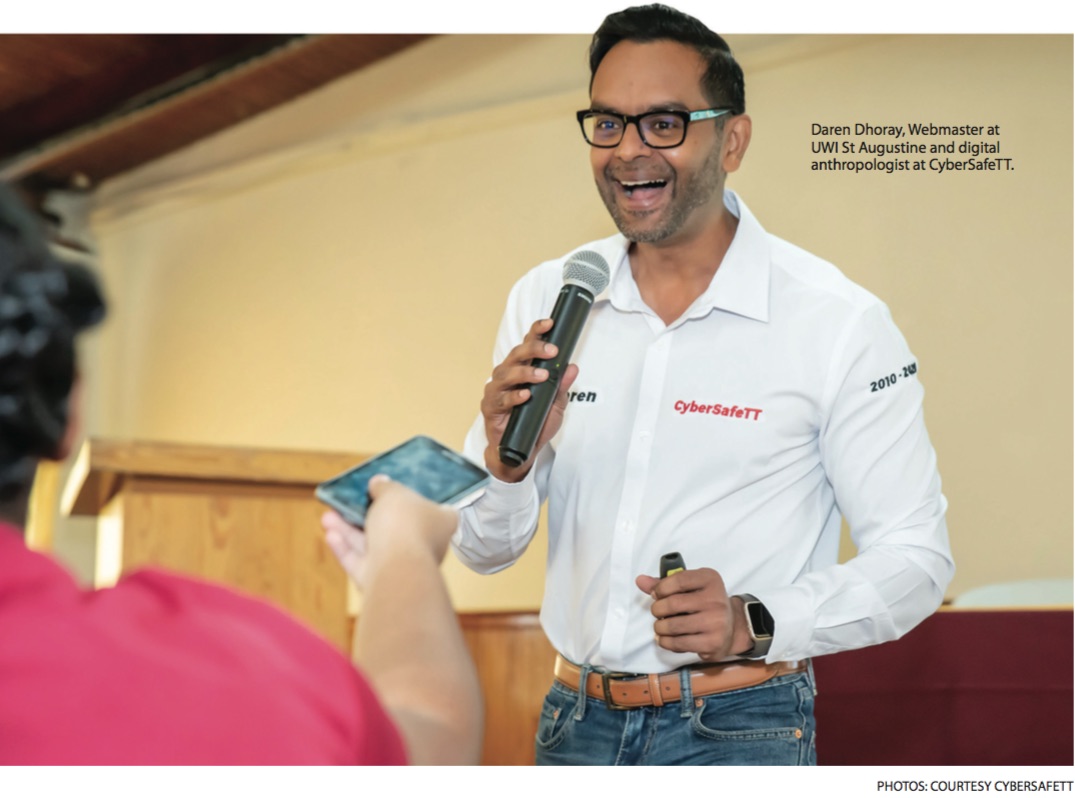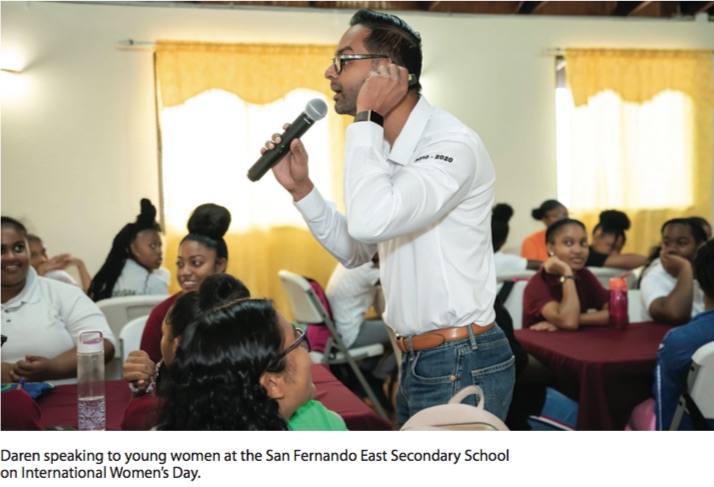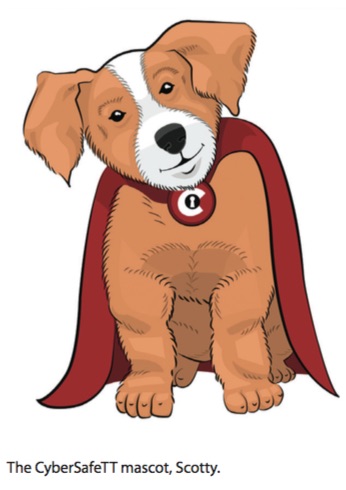“Control the device, don’t let the device control you.”
So says Daren Dhoray, Webmaster at UWI St Augustine. For Dhoray, technology is a tool to make our lives easier, make information more accessible, and keep us and our families safe. For years, teaching people how to stay safe online has been one of his projects and passions. He believes cyber safety and security must be taken more seriously, not only at an organisational level, but also at a personal one.

Digital anthropologist at CyberSafe Trinidad and Tobago (CyberSafeTT) for the last 10 years of its operation, Dhoray has a wealth of IT knowledge when it comes to safety and security; knowledge he has been sharing with some of the most vulnerable in our society – children. For the last ten years, Daren and his CyberSafeTT team have spoken to over 12,000 students, teachers and parents at the primary and secondary school levels, as well as NGOs, on what to do while online. Their discussions run the gamut of cyber etiquette, internet addiction, creating a strong password, and how to get help if you have been a victim of cyberbullying. His messages are consistently well received.
Dhoray’s brainchild, CyberSafeTT came about when he realised the many gaps that would have had to be closed in order to protect children who access these devices. As technology advances, so too should the way we keep ourselves safe while using it.
A line that always runs through his head is, “the devices are listening”, a topic he covered in a 2017 blog post on the CybersafeTT website. Worrisome thoughts when you are not sure what your devices are doing with the data you share should be enough to give anyone pause. How many of us have spoken about an item privately to a friend on a messaging app only to see ads for the item pop up on their social media accounts? Have you thought about all the information that you store on your private devices and what you have put in place to keep it safe? Do you know about antivirus and anti malware software? When was the last time that you did a backup of those important documents you have on your laptop? Do you know which apps can remotely access your webcam?

If you have never considered any of this, then Dhoray is quietly shaking his head at you. Technology is not the problem. Failing to adapt is. CybersafeTT wants to teach you how to utilise technology to your benefit. Over the many years that he has served in the IT field, Dhoray has seen where many have created a false sense of security with their devices, thinking they do not need to protect their, private information.
During this time when many parents are overseeing online learning, there are several ways that children can be kept safe. Referencing an unfortunate incident in Tobago where unsavoury content was shared in a Zoom class, Dhoray speaks about how important it is to not allow children to conduct their online schooling in closed spaces. Where possible, it should be done in an open space where parents can have a presence. Living rooms, dining rooms, or even the kitchen table are all great options.
He also urges guardians to place parental controls on the internet router to control content and accessibility to the internet. CybersafeTT recommends parental control routers, such as KoalaSafe, that allow parents to easily manage screen time and the types of apps used.
“A meaningful conversation needs to be had with any child before they are allowed to utilise tech,” says Dhoray. “Providing them with the knowledge of how they can use tech properly and keeping an open line of communication to the dangers of improper use of technology (cyberbullying, internet addiction, etc) can help them navigate the internet safely.”

For the adults who are now tasked with having online meeting after online meeting, and may be utilising their personal computers, Dhoray has some tips for working successfully and safely from home. First, the device itself must be protected - never leave it plugged into the wall socket when not in use. This leaves devices vulnerable to energy fluctuations. The purchase of an uninterruptible power source (UPS) device can solve this problem. He also recommends that we should always back up our data using a 3, 2, 1 process: (3) create primary and backups, (2) store on different storage media, and (1) keep a copy of your data offsite (such as cloud storage) and always remember to install antivirus and anti malware software.
Being safe online, whether we are simply scrolling through social media, doing important research, or video chatting, is necessary in this time as many operations are inevitably being moved to this space. Do not become complacent and develop a false sense of security with your devices and apps. You control the device. Don’t let it control you.
If you are interested in finding out more about CyberSafeTT and their initiative, contact Mr Daren Dhoray at daren@cybersafett.com or call (868) 680-6480.